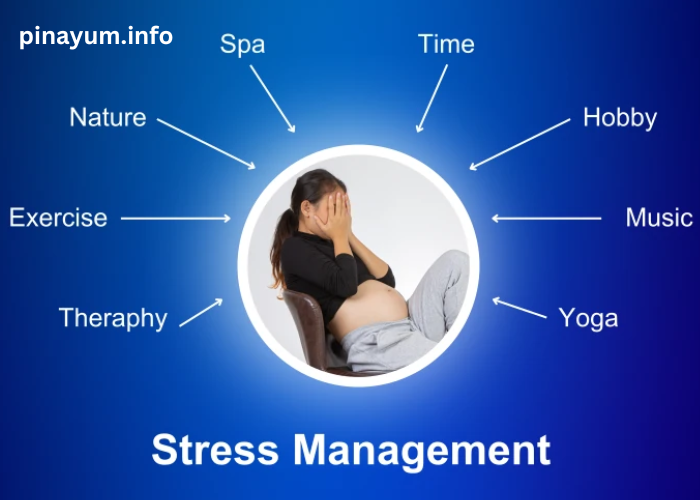In today’s fast-paced world, stress has become an inevitable part of life. From work deadlines and personal responsibilities to global uncertainties, stress can arise from various aspects of our daily existence. While stress is a natural response to challenging situations, chronic or unmanaged stress can have a significant negative impact on mental and physical health.
Effective stress management is crucial for maintaining overall well-being and preventing long-term health issues such as anxiety, depression, heart disease, and burnout. The good news is that there are many strategies, backed by research and expert opinion, that can help individuals cope with stress more effectively. These strategies can be incorporated into daily life, fostering resilience and mental strength.
In this article, we will explore the top mental health strategies for stress management, focusing on practical and evidence-based approaches that individuals can adopt to reduce stress, improve emotional well-being, and enhance their quality of life.
Understanding Stress and Its Impact
Before delving into the strategies, it is important to understand what stress is and how it affects the body. Stress is a natural physiological and psychological response to external pressures or demands, often referred to as “stressors.” When the body perceives a stressor, it activates the fight-or-flight response, releasing hormones such as cortisol and adrenaline that prepare the body for action.
While this response can be helpful in short bursts (e.g., escaping danger or meeting a deadline), prolonged stress can lead to negative consequences, including:
- Physical Health Issues: Chronic stress has been linked to conditions such as high blood pressure, heart disease, digestive problems, sleep disturbances, and weakened immunity.
- Mental Health Problems: Prolonged stress can contribute to mental health issues like anxiety, depression, and burnout. It can also impair cognitive functions like memory and concentration.
- Emotional Exhaustion: Persistent stress can result in emotional burnout, causing feelings of frustration, irritability, and a sense of helplessness.
Given these potential outcomes, stress management becomes a vital aspect of maintaining both physical and mental health.
1. Practice Mindfulness and Meditation
Mindfulness is the practice of being fully present and engaged in the current moment, without judgment or distraction. It involves observing thoughts, feelings, and sensations as they arise, allowing individuals to respond to stressors with awareness rather than automatic reactions.
Meditation is one of the most popular mindfulness techniques. It involves focusing the mind on a particular object, thought, or activity to promote relaxation and reduce stress. Both mindfulness and meditation have been shown to reduce the levels of cortisol (the stress hormone) in the body, improve emotional regulation, and enhance cognitive function.
How to Practice Mindfulness:
- Mindful Breathing: Focus on your breath, observing each inhale and exhale. When your mind wanders, gently bring your attention back to your breath.
- Body Scan: Slowly bring awareness to each part of your body, starting from your toes and working up to your head, noticing any sensations without judgment.
- Mindful Walking: As you walk, pay attention to the movement of your body, the sensation of your feet touching the ground, and the sights and sounds around you.
Even just a few minutes of mindfulness or meditation each day can help reduce stress and improve overall mental clarity.
2. Exercise Regularly
Exercise is one of the most effective natural stress relievers. Physical activity triggers the release of endorphins, which are the body’s natural “feel-good” hormones. These endorphins help improve mood, reduce anxiety, and promote a sense of well-being. Regular exercise can also improve sleep quality, boost energy levels, and help the body cope with stress more effectively.
Exercise and Stress Management:
- Aerobic Exercise: Activities such as running, cycling, swimming, or brisk walking can increase heart rate, stimulate endorphin release, and improve cardiovascular health.
- Strength Training: Lifting weights or engaging in resistance training can reduce stress and build physical strength and endurance.
- Yoga: Yoga combines physical postures, breathwork, and mindfulness, making it a powerful tool for reducing stress, improving flexibility, and fostering a calm mind.
- Tai Chi: This ancient practice involves slow, deliberate movements and focused breathing, which can help reduce stress and improve mental clarity.
The key is consistency. Even if you start with a small, manageable amount of exercise, the benefits will build over time.
3. Build Healthy Relationships and Social Support
Humans are inherently social creatures, and the relationships we maintain play a significant role in managing stress. Social support provides a sense of belonging and reassurance during difficult times, making it easier to cope with stress.
Having a strong support system of friends, family, or colleagues can help buffer the effects of stress and reduce feelings of isolation. Talking to others about your challenges, sharing your thoughts and emotions, and seeking advice or empathy can provide relief and perspective.
Tips for Building Healthy Relationships:
- Nurture Existing Relationships: Spend quality time with people who make you feel supported and valued.
- Join Social or Support Groups: Seek out communities that align with your interests or provide mutual support, such as fitness groups, book clubs, or therapy groups.
- Practice Active Listening: In conversations, focus on truly listening to others, which can create a deeper connection and mutual understanding.
- Set Boundaries: Healthy relationships involve respect for personal boundaries. Make sure to set limits with others to avoid becoming overwhelmed by others’ demands.
Strong social ties provide emotional resilience, making it easier to navigate stressful situations.
4. Prioritize Sleep and Rest
Sleep is essential for mental health and stress management. When we are well-rested, the brain functions better, mood improves, and stress levels decrease. On the other hand, lack of sleep can heighten stress, impair decision-making, and make it harder to regulate emotions.
Tips for Improving Sleep:
- Establish a Sleep Routine: Go to bed and wake up at the same time every day, even on weekends, to regulate your circadian rhythm.
- Create a Relaxing Sleep Environment: Make your bedroom a calm and restful space by keeping it dark, quiet, and cool.
- Limit Caffeine and Screen Time: Avoid consuming caffeine in the afternoon and reduce screen time before bed, as blue light can interfere with melatonin production.
- Practice Relaxation Techniques: Use deep breathing, progressive muscle relaxation, or guided imagery to calm your mind before bedtime.
For optimal stress management, aim for 7-9 hours of quality sleep each night to allow your body to recover and regenerate.
5. Maintain a Balanced Diet
Nutrition plays a significant role in mental health and stress management. What we eat affects our mood, energy levels, and overall well-being. A well-balanced diet rich in essential nutrients can support the body’s stress response and help regulate hormones that affect mood.
Stress-Reducing Foods:
- Complex Carbohydrates: Foods like whole grains, sweet potatoes, and vegetables help stabilize blood sugar levels, which can reduce mood swings and irritability.
- Omega-3 Fatty Acids: Fatty fish (such as salmon), chia seeds, and walnuts have anti-inflammatory properties that can reduce stress and improve brain function.
- Magnesium-Rich Foods: Magnesium helps relax muscles and nerves. Foods like leafy greens, almonds, and avocados are excellent sources of magnesium.
- Probiotic-Rich Foods: Gut health is closely linked to mental health. Fermented foods like yogurt, kefir, kimchi, and sauerkraut can support healthy gut bacteria and reduce anxiety.
Limiting caffeine, alcohol, and highly processed foods is also important, as these can exacerbate stress and interfere with sleep.
6. Engage in Relaxation Techniques
Relaxation techniques are specifically designed to counteract the body’s stress response and promote a state of calm. These techniques help reduce muscle tension, lower heart rate, and decrease stress hormone levels.
Effective Relaxation Strategies:
- Progressive Muscle Relaxation (PMR): This technique involves systematically tensing and relaxing different muscle groups in the body to promote physical and mental relaxation.
- Deep Breathing Exercises: Focus on slow, deep breaths, inhaling for a count of four, holding for four, and exhaling for a count of four. This helps activate the body’s relaxation response.
- Visualization: Mentally picture yourself in a peaceful setting, such as a beach or forest, to reduce stress and promote relaxation.
Regular practice of these techniques can help individuals manage stress in the moment and prevent its buildup over time.
7. Seek Professional Help When Needed
While self-care strategies can be very effective in managing stress, it is important to acknowledge when professional help may be needed. If stress becomes overwhelming, chronic, or leads to anxiety, depression, or burnout, seeking the support of a therapist or counselor can be beneficial.
Therapists are trained to help individuals cope with stress and develop effective coping mechanisms. Cognitive-behavioral therapy (CBT), for example, is a popular approach for managing stress and negative thought patterns. Psychologists and counselors can also help address any underlying mental health conditions that may be contributing to stress.
Conclusion
Stress is an inevitable part of life, but it doesn’t have to control your mental or physical well-being. By adopting a combination of the strategies outlined above, individuals can build resilience, reduce the negative impact of stress, and improve their overall quality of life. Whether through mindfulness and meditation, regular exercise, healthy nutrition, or seeking support from others, managing stress effectively is essential for maintaining good mental health.
By taking proactive steps to manage stress, individuals can not only improve their immediate emotional state but also safeguard their long-term mental and physical health. The key is consistency—making stress management practices a regular part of daily life will ultimately lead to greater peace of mind and a healthier, more balanced life.





